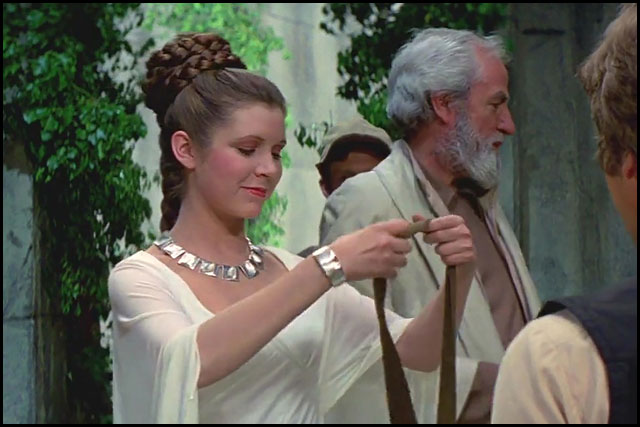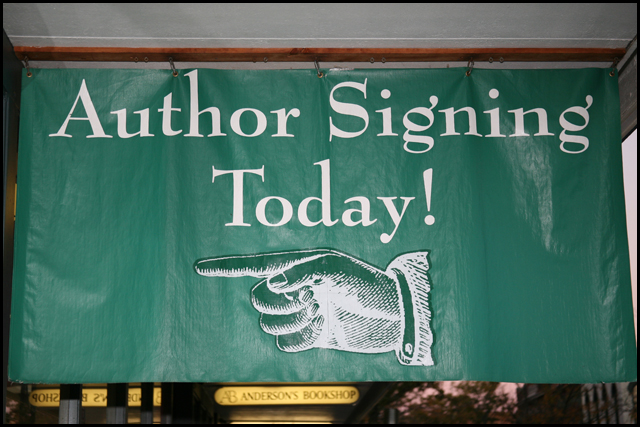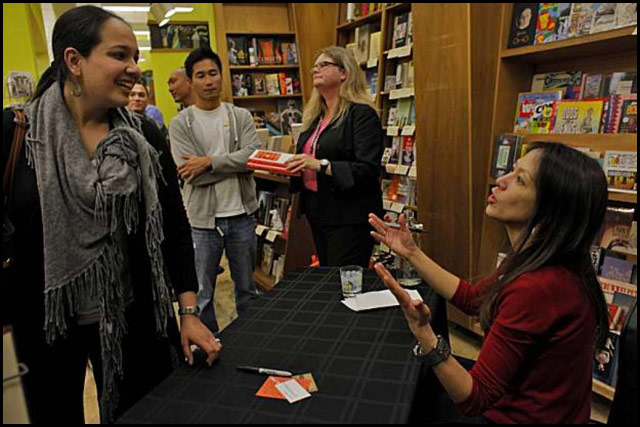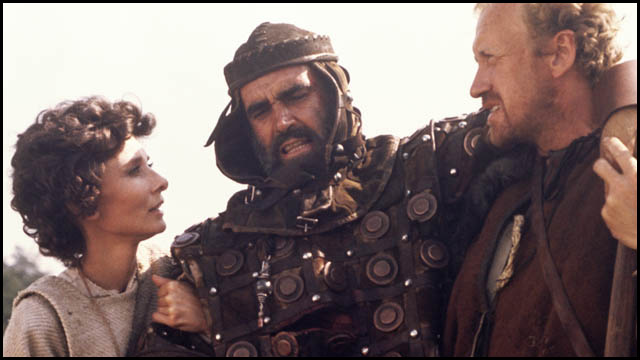(Originally posted on LiveJournal)
So, there I was, reviewing the visitor stats for my website, and I checked out the search strings that brought some people to the site. It’s kind of interesting to see how people get there (well, once you get past realizing that the high number of hits are spambots prowling about, alas).
Anyway, one thing that shows up consistantly are searches for “heroines” – and “heroes” and “quest”.
These are aspects of mythic patterns in stories, of course, which I wrote a whole book about (heh — hype! hype! after all, you’re on its website!). But that book grew out of my studies into matters connected to heroes and heroines and quests. Because of that, I thought it would be interesting to do some musing on the nature of heroines these days, particularly in modern fantasy works (whether set in pseudo-medieval worlds or in contemporary urban settings). What’s going on with them? What has changed in how heroines function in stories these days?

Princess Leia stands between Object for Rescue and Acting for Herself
So, first off, I went back and reread the column I wrote a long time ago about heroes and heroines. Admittedly the “writer’s voice” in that column is much more scholarly and impersonal than the one I use these days. But once I got past that, it did set me to thinking about some things.
The “traditional” role of heroines was that they were the objects of the quest, the princess to be won, or rescued, or freed. She was certainly not the active character in the story, making the choices and moving the plot forward. In the column, I described the function she served in the story as being the representative of the Essence of the tale. The nature of the heroine served to represent the goals of the quest the hero pursued. Dividing the Action and the Essence of the story into gender roles was a convenient shorthand for storytellers. It didn’t really reflect the capabilities of either sex when confronted with real quests. But for a long time, because the social position of women was limited greatly, no one thought about that distinction.
These days however, women have the freedom to do almost everything that Society allows men to do. I say “almost”, because in America, women are prohibited from direct combat roles – mostly because in many ways, America is a very conservative society. England, Israel, India, Pakistan, Sri Lanka, Ireland, Iceland — (and that’s just off the top of my head) all those countries have had women heads of state, long before America, the supposedly progressive nation, has even put forward a truly viable woman candidate for national leader. But when it comes to stories, we do put women to the forefront.
The thing is, what we have now are “female heroes”, not “heroines”. We have female characters who are taking the principal role of action, driving the story forward. But forward to what? What is it these days that serves as the embodiment of the goal of the story’s quest? The figure that personifies the socialization of the Hero at the end of the quest? Because we do not really cast male characters into that somewhat objectified role. We still shy away from putting male characters into the position of being rescued, freed, won for marriage and, in a word, inactive in the plot. There are very few male counterparts to Sleeping Beauty. Perhaps the Prince Charming of many Cinderella versions does serve that purpose, but even in that story, he does have to go out and find the owner of the magical footware.
Now, don’t mistake me. I do think it a good thing that modern stories allow female characters to be more active, to be, in fact, the hero of the story. I’ve always liked stories with strong female characters. But I’ve been wondering what we’re losing on the symbolic level by transforming the Figure of Essence into the Figure of Action.
I don’t have any answers on this. The modern sensibilities would certainly sneer at the immobile traditional fairy tale princess who only exists to be won. Quite rightly, from the social perspective. But I don’t know that we’ve found a substitute for the Figure of Essence in stories yet.
(Yes, I guess I’ve just now coined two new story terms: Figure of Action and Figure of Essence. I wonder if they’ll be useful?)
Comments
lisa_marli – Oct. 29th, 2008
I think the Figure of Essence remains the Female, only this time instead of being Rescued, she is in Charge of the Rescue. What do Females rescue? The People, Society, Themselves. They destroy the Bad Guy, they find the Object of Truth, they find the missing people, they find their Real Identity. They do tons of stuff, and through it all They Grow. But they don’t wait for some guy to do it for them. They now do it for themselves.
As Frodo has proven, you don’t always rescue the Princess (who is in another castle), some times you destroy a ring and free your world, and you grow beyond your little self. And in the case of two of his friends, literally. 🙂
scribblerworks – Oct. 29th, 2008
I pretty much agree with you that these days the Female character serves as both figures melded into one. And there’s nothing inherently wrong with that.
But what I do wonder about is that I think we also lose something on the symbolic level by having that integration. “Symbolic talk” is best served by separating out significant qualities, putting the representation of them in different characters in order to better highlight them. With the integration of the Figures becoming more the norm, the nature of them both becomes a bit more obscured.
Or so it seems to me. But then, I’m still mulling over the ideas. 🙂
But I certainly do agree that Female Heroes frequently do represent the quest for Real Identity. Which would indeed involve the integration of the Figure of Action and the Figure of Essence. Heh. It goes in circles, doesn’t it?
(Deleted comment)
scribblerworks – Oct
Re: Figures of Action and Essence
(I really, really hate it that LJ does not save drafts of response – or posts, for that matter! I accidentally double tapped my “enter” key while working on my original response, and that wiped out the whole thoughtful thing I’d written. Booo!)
Anyway…
I completely agree with you about strong heroic female characters.
Gender politics can so easily infect and divert discussions of symbolic/mythic imagery in stories. I suspect that’s why I’ve often found uber-feminist fantasies to be unsatisfying, because they don’t understand that there is a difference between “masculine symbols” and the nature of actual men.
Symbolic and mythic imagery is a subjective language, that uses similarities, usually visual, physical similarities, to group concepts. So towers, which are considered the symbol of intellect, order and reason (because from the top of a tower, you can see clearly over a wide territory), get grouped as masculine symbols, not because men are more intellectual, orderly and reasonable than women, but because a part of the male body can sometimes resemble a tower. 🙂
(Which if you consider reality, makes it even more amusing, while emphasizing that the grouping IS merely visual — is there anything really intellectual, orderly or reasonable about male sexual arrousal? Hee.)
Dealing with the modern gender politics was something I had to handle carefully in The Scribbler’s Guide to the Land of Myth, because although I do think that female characters ought to be able to do anything, there remain some things that have specific “masculine” or “feminine” symbolic resonances. Because of the biological construction of the human species, there will some things that will always be the realm of male or female. And such imagery is inherent in us, regardless of the assignment of social roles.
Heh. Sorry for the dissertation.
corrinalaw – Oct. 29th, 2008
What about the child as a Figure of Essence, such as Ellora Dannen in Willow?
scribblerworks – Oct. 29th, 2008
It’s been a long time since I last saw Willow, so I’m really running on memory here. But Ellora Dannen is a bit of a problem that way — I mean is she a character or an object, in story terms? In a lot of ways she’s more a Special Object than a character.
But that said, yes, I suppose a child could indeed serve as a Figure of Essence, since by being a child, the character would also represent the future fate of whatever Essential Quality is being presented.
Hmmmm. More things to think about, obviously!
(This is fun!)

 I’m starting to realize just how much work it is to market something. You really do have to do a lot of hyping just to get one person to make the little effort of ordering the book on Amazon! It’s very eye-opening.
I’m starting to realize just how much work it is to market something. You really do have to do a lot of hyping just to get one person to make the little effort of ordering the book on Amazon! It’s very eye-opening.

 I was a bit flabbergasted at the reasoning. Robin and Marion is a beautifully made and acted film. It’s actually one of my favorites. But I know full well why it did not do well at the box office: in general, audiences do not want to watch stories of the death of heroes, especially the “he’s going to die soon, anyway, because he’s old” type, especially of the legendary type of hero that Robin Hood is. Legendary heroes are supposed to go on forever, or their ends are supposed to be obscured from everyone. That is, if you aren’t going to give them the big victory and sacrifice type of ending that William Wallace gets in Braveheart. But the deaths in Robin and Marion are not comfortable: Marion’s declaration at the end of the film as they are dying makes us uneasy — “I loved you more than God.”
I was a bit flabbergasted at the reasoning. Robin and Marion is a beautifully made and acted film. It’s actually one of my favorites. But I know full well why it did not do well at the box office: in general, audiences do not want to watch stories of the death of heroes, especially the “he’s going to die soon, anyway, because he’s old” type, especially of the legendary type of hero that Robin Hood is. Legendary heroes are supposed to go on forever, or their ends are supposed to be obscured from everyone. That is, if you aren’t going to give them the big victory and sacrifice type of ending that William Wallace gets in Braveheart. But the deaths in Robin and Marion are not comfortable: Marion’s declaration at the end of the film as they are dying makes us uneasy — “I loved you more than God.” At our screenwriters group last Saturday, in a discussion about the difficulty of finding really good scripts (one of our members is a producer and she’s been looking for a suitable property), things veered into the matter of good writing. So my friend pulled out what she said was her favorite quote.
At our screenwriters group last Saturday, in a discussion about the difficulty of finding really good scripts (one of our members is a producer and she’s been looking for a suitable property), things veered into the matter of good writing. So my friend pulled out what she said was her favorite quote.
